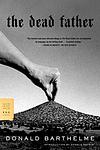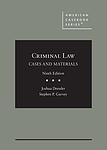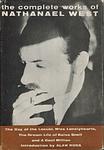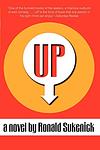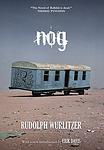The Greatest Russian, American, Austrian "Absurdist, Fiction" Books Since 1900
Click to learn how this list is calculated.
This list represents a comprehensive and trusted collection of the greatest books. Developed through a specialized algorithm, it brings together 305 'best of' book lists to form a definitive guide to the world's most acclaimed books. For those interested in how these books are chosen, additional details can be found on the rankings page.
Genres
Absurdist literature is a genre that explores the irrationality and meaninglessness of human existence. It often features characters who are trapped in absurd situations and struggle to find purpose or understanding in a chaotic world. Absurdist books challenge traditional notions of plot, character development, and narrative structure, and often use humor and satire to critique societal norms and conventions. This genre is characterized by its philosophical and existential themes, and its rejection of traditional literary conventions.
Countries
Date Range
Reading Statistics
Click the button below to see how many of these books you've read!
Download
If you're interested in downloading this list as a CSV file for use in a spreadsheet application, you can easily do so by clicking the button below. Please note that to ensure a manageable file size and faster download, the CSV will include details for only the first 500 books.
Download-
1. Catch-22 by Joseph Heller
The book is a satirical critique of military bureaucracy and the illogical nature of war, set during World War II. The story follows a U.S. Army Air Forces B-25 bombardier stationed in Italy, who is trying to maintain his sanity while fulfilling his service requirements so that he can go home. The novel explores the absurdity of war and military life through the experiences of the protagonist, who discovers that a bureaucratic rule, the "Catch-22", makes it impossible for him to escape his dangerous situation. The more he tries to avoid his military assignments, the deeper he gets sucked into the irrational world of military rule.
The 18th Greatest Book of All Time -
2. Slaughterhouse-Five by Kurt Vonnegut
The novel follows the life of Billy Pilgrim, a World War II veteran who has become "unstuck in time," experiencing his life events out of order. This includes his experiences as a prisoner of war in Dresden during the Allies' firebombing, his post-war life as a successful optometrist, his abduction by aliens from the planet Tralfamadore, and his eventual death. The book is a critique of war and a demonstration of the destructive nature of time, with a nonlinear narrative that reflects the chaos and unpredictability of life.
The 54th Greatest Book of All Time -
3. A Confederacy of Dunces by John Kennedy Toole
The novel is a comedic satire set in New Orleans in the early 1960s, centered around Ignatius J. Reilly, a lazy, eccentric, highly educated, and socially inept man who still lives with his mother. Ignatius spends his time writing a lengthy philosophical work while working various jobs and avoiding the responsibilities of adulthood. The story follows his misadventures and interactions with a colorful cast of characters in the city, including his long-suffering mother, a flamboyant nightclub owner, a beleaguered factory worker, and a frustrated hot dog vendor.
The 175th Greatest Book of All Time -
4. Cat's Cradle by Kurt Vonnegut
This novel is a satirical commentary on modern man and his madness, exploring issues of science, technology, and religion. The story revolves around a narrator who becomes involved with the children of a deceased scientist, who had developed a substance capable of freezing water at room temperature. This substance, if misused, has the potential to end all life on earth. The novel is filled with strange and twisted characters, and culminates in a cataclysmic event, highlighting the dangers of uncontrolled technological advancement.
The 507th Greatest Book of All Time -
5. The Sirens of Titan by Kurt Vonnegut
The novel explores the life of Malachi Constant, the richest man in a future America, who has gained his wealth due to his father's foresight in investing in companies that benefit from the space race. The narrative takes him from Earth to Mars, Mercury, back to Earth, and finally to one of Saturn's moons, Titan. Along the way, he experiences a series of bizarre, humorous, and tragic events that reveal the senselessness of war and the emptiness of a life devoid of love. The novel offers a biting critique of capitalism, militarism, and religion, while also exploring themes of free will, determinism, and the search for meaning.
The 681st Greatest Book of All Time -
6. Correction by Thomas Bernhard
"Correction" is a complex narrative revolving around the life of a man named Roithamer, a genius obsessed with constructing an architectural masterpiece, the Cone, in the center of the Kobernausser forest. The story is told through the perspective of his friend who is reading Roithamer's notes after his suicide. The novel explores themes of obsession, isolation, and the pursuit of perfection, while also delving into the protagonist's troubled relationships with his family and society.
The 1031st Greatest Book of All Time -
7. Extinction by Thomas Bernhard
"Extinction" is a novel that explores the dark and complex themes of family, identity, and history through the eyes of its protagonist, a professor living in Rome. When he receives news of the deaths of his parents and brother in a car accident, he is forced to confront his past and his Austrian heritage. The narrative delves into his thoughts and feelings, his criticisms of his family and society, and his philosophical musings on life and death, all while he prepares to return to his family's estate for the funeral. The novel is renowned for its dense, stream-of-consciousness style and its unflinching examination of the human condition.
The 1416th Greatest Book of All Time -
8. Sixty Stories by Donald Barthelme
"Sixty Stories" is a collection of short narratives that use unconventional, experimental structures to explore a range of themes. The book is known for its absurdist and postmodern style, and the stories often feature elements of parody, surrealism, and satire. The tales cover a wide array of topics, including art, literature, philosophy, and the human condition, all presented with a unique blend of humor, wit, and intellectual depth.
The 1534th Greatest Book of All Time -
9. Concrete by Thomas Bernhard
The book is a darkly introspective narrative that delves into the mind of a reclusive, obsessive intellectual who is struggling to complete his scholarly work on the composer Mendelssohn. As he grapples with his own ailments and the perceived mediocrity of his surroundings, the protagonist's stream-of-consciousness monologue reveals his deep-seated anxieties, self-loathing, and profound isolation. The narrative is a relentless examination of the protagonist's psyche, showcasing his critical view of society and his own personal relationships, which are fraught with tension and dysfunction. Through this, the novel explores themes of artistic creation, intellectual elitism, and the suffocating nature of expectations and familial obligations.
The 1733rd Greatest Book of All Time -
10. Woodcutters by Thomas Bernhard
Woodcutters is a darkly humorous critique of Vienna's artistic elite. The story takes place over the course of a single evening, as the narrator attends a dinner party in honor of a recently successful actor. As the evening progresses, he reflects on the pretentiousness and hypocrisy of the guests, the mediocrity of their artistic achievements, and the tragic suicide of his former lover. The novel is a scathing indictment of the vanity and self-delusion of the artistic community.
The 1741st Greatest Book of All Time -
11. The Dead Father by Donald Barthelme
The book is a surreal, postmodern narrative following a group of characters as they drag the physical manifestation of their dead father across a variety of landscapes. The characters grapple with their relationships to the father figure, exploring themes of authority, control, and the nature of storytelling itself. The novel is known for its experimental style, blending a range of literary techniques and genres to create a unique, fragmented narrative.
The 2028th Greatest Book of All Time -
12. The Clay Machine-gun by Victor Pelevin
"The Clay Machine-gun" is a surreal and complex novel that explores the nature of reality and illusion. The story is set in post-Soviet Russia and follows a protagonist who has multiple identities, including a poet in 19th-century Russia, a 20th-century psychiatric patient, and a 21st-century advertising executive. The narrative moves between these identities and realities, blurring the lines between them and creating a layered and philosophical exploration of Russian society, identity, and the human psyche.
The 2266th Greatest Book of All Time -
13. The Breast by Philip Roth
The book is a surreal and darkly comic novella that explores the bizarre transformation of a college professor who inexplicably turns into a giant breast. This metamorphosis leads him to confront a range of human experiences and emotions, including sexuality, identity, and the absurdity of existence. As he grapples with his new form, the protagonist reflects on his past life and relationships, while also dealing with the practical and philosophical implications of his current condition. The narrative delves into themes of alienation and the human condition, all while maintaining a satirical tone that challenges the reader's sense of normalcy and the boundaries of the self.
The 2942nd Greatest Book of All Time -
14. Cases by Daniil Kharms
The book is a collection of absurdist short stories that reflect the author's unique take on the Soviet reality of his time. Through a series of bizarre and darkly humorous vignettes, the author explores themes of meaninglessness, the breakdown of logic, and the unpredictability of human existence. His characters often find themselves in surreal situations that defy conventional understanding, highlighting the author's fascination with the illogical and the nonsensical. The work serves as both a critique of the societal norms of the era and an example of the avant-garde literary movement to which the author belonged.
The 3770th Greatest Book of All Time -
15. Christmas At The Ivanovs' by Alexander Vvedensky
"Christmas at the Ivanovs'" is a satirical play that delves into the absurdities of Soviet life during the early 20th century. The narrative unfolds during a Christmas celebration at the Ivanov family's home, where a series of bizarre and surreal events take place. The characters, including a detective, a poet, and various family members, engage in nonsensical dialogues and actions, reflecting the author's avant-garde approach to theater. The play critiques the disconnect between the state's ideological propaganda and the grim realities of everyday life, using dark humor and chaotic scenes to challenge the audience's perception of normalcy and rationality within a society under strict political control.
The 3787th Greatest Book of All Time -
16. A School For Fools by Sasha Sokolov
The novel presents a fragmented and surreal narrative that delves into the mind of a young boy with a learning disability, attending a special school in the Soviet Union. Through a stream-of-consciousness style, the book explores the boy's experiences and perceptions, blending reality with fantasy, and time with memory. The protagonist's inner world is rich with poetic language and vivid imagery, reflecting his struggle to find his place in a society that marginalizes those who are different. The narrative structure defies conventional storytelling, offering a unique and challenging perspective on the nature of sanity, the power of institutions, and the complexity of the human psyche.
The 4014th Greatest Book of All Time -
17. The Complete Works of Nathanael West by Nathanael West
This collection features the complete works of a renowned American author, known for his dark humor and social criticism. The book includes four novels and various other writings that depict the disillusionment and despair of the Great Depression era. His stories often revolve around aspiring artists and Hollywood dreamers, exploring themes of fame, illusion, and the American Dream. The author's unique style blends satire and tragedy, creating a distinct voice in 20th-century American literature.
The 4151st Greatest Book of All Time -
18. Double Or Nothing by Raymond Federman
"Double Or Nothing" is an experimental novel that explores the life of a young man trying to pen a novel about his experiences as a Holocaust survivor. The book is unique in its format, with the protagonist's thoughts, ideas, and narrative presented in various graphic and typographical forms. The narrative is nonlinear and fragmented, reflecting the protagonist's struggle to make sense of his traumatic past and his attempts to express it through writing.
The 5681st Greatest Book of All Time -
19. The Loser by Thomas Bernhard
"The Loser" is a philosophical novel that revolves around the complex relationship between three friends who are all piano virtuosos. The narrative is driven by the protagonist's obsession with his friend's suicide, which he believes was triggered by the realization that they could never surpass the genius of their third friend. The book delves into the protagonist's psyche as he grapples with themes of talent, ambition, failure, and the destructive power of comparison.
The 5720th Greatest Book of All Time -
20. Up by Ronald Sukenick
"Up" is a postmodern novel that explores the life of an unnamed protagonist who is a writer. The narrative structure of the book is unique, as it breaks traditional storytelling norms and uses a fragmented and nonlinear approach to depict various events and experiences in the protagonist's life. The book delves into themes of identity, reality, and the nature of storytelling, offering a metafictional commentary on the process of writing and the relationship between the author, the narrative, and the reader.
The 5721st Greatest Book of All Time -
21. Take It Or Leave It by Raymond Federman
"Take It Or Leave It" is a unique narrative that blends fiction and autobiography. The story is about a French-American man who is drafted into the U.S. Army during the Korean War. The narrative is non-linear and fragmented, often digressing into side stories and anecdotes. The protagonist shares his experiences of growing up in France during World War II, his immigration to the United States, and his experiences in the army. The book plays with the conventions of storytelling and is known for its postmodern style.
The 5731st Greatest Book of All Time -
22. Nog by Rudy Wurlitzer
"Nog" is a surreal and psychedelic tale of a man's journey through a chaotic and disorienting world. The protagonist, Nog, embarks on an existential adventure across America, encountering a series of bizarre characters and situations along the way. The narrative is often nonlinear and disjointed, reflecting Nog's fragmented perception of reality. The book is a critique of the American Dream and explores themes of alienation, disillusionment, and the search for meaning in a seemingly senseless world.
The 5738th Greatest Book of All Time -
23. Mulligan Stew by Gilbert Sorrentino
"Mulligan Stew" is a postmodern novel that centers around an unsuccessful writer, Antony Lamont, who is attempting to pen a detective novel. The book is filled with literary and cultural references, parodying various genres and styles. It also features characters from his failed novel who are aware of their fictional status and openly rebel against their creator. The narrative is non-linear and includes letters, lists, interviews, and even a short play, creating a complex and satirical exploration of the writing process.
The 6137th Greatest Book of All Time -
24. The Age of Wire and String by Ben Marcus
This book is a collection of short, interconnected stories that challenges the conventions of narrative and language. The stories are set in an alternative America and are filled with surreal and bizarre elements, often defying logic and meaning. The author uses a unique, poetic language to describe this world, creating a strange and disorienting effect. The book is divided into different sections, each dealing with a different aspect of this world, such as food, sleep, or animals. It's a challenging and thought-provoking read that pushes the boundaries of fiction.
The 7080th Greatest Book of All Time -
25. The End Of The Road by John Barth
The novel is a darkly humorous exploration of existential themes, following the story of a man who, after a suicide attempt, is rescued by a doctor specializing in "mythotherapy." He embarks on a journey of self-discovery, taking a job at a car dealership in a small town and becoming entangled in a complex love triangle with a fellow teacher and his wife. The narrative delves into the characters' psychological struggles and the absurdity of their attempts to find meaning in life, culminating in a series of bizarre and tragic events that force the protagonist to confront the consequences of his actions and the limitations of his philosophical musings.
The 7168th Greatest Book of All Time
Reading Statistics
Click the button below to see how many of these books you've read!
Download
If you're interested in downloading this list as a CSV file for use in a spreadsheet application, you can easily do so by clicking the button below. Please note that to ensure a manageable file size and faster download, the CSV will include details for only the first 500 books.
Download









